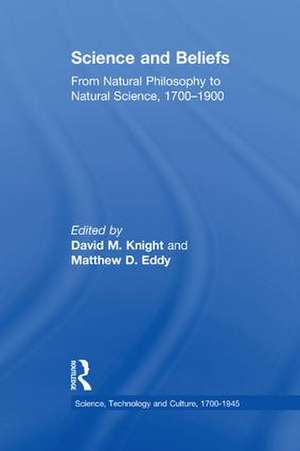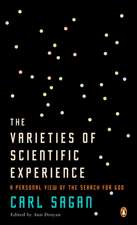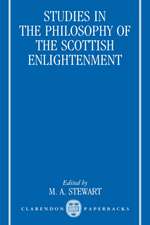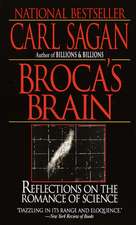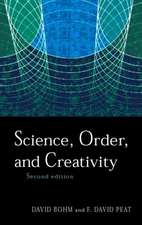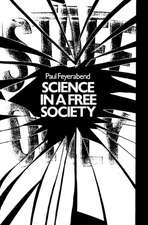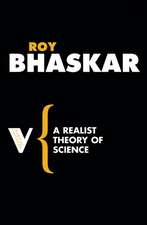Science and Beliefs: From Natural Philosophy to Natural Science, 1700–1900: Science, Technology and Culture, 1700-1945
Autor Matthew D. Eddy Editat de David M. Knighten Limba Engleză Paperback – 6 mar 2017
| Toate formatele și edițiile | Preț | Express |
|---|---|---|
| Paperback (1) | 469.34 lei 6-8 săpt. | |
| Taylor & Francis – 6 mar 2017 | 469.34 lei 6-8 săpt. | |
| Hardback (1) | 1000.27 lei 6-8 săpt. | |
| Taylor & Francis – 11 iul 2005 | 1000.27 lei 6-8 săpt. |
Din seria Science, Technology and Culture, 1700-1945
-
 Preț: 310.88 lei
Preț: 310.88 lei -
 Preț: 475.16 lei
Preț: 475.16 lei -
 Preț: 469.34 lei
Preț: 469.34 lei - 12%
 Preț: 299.52 lei
Preț: 299.52 lei -
 Preț: 469.34 lei
Preț: 469.34 lei -
 Preț: 489.26 lei
Preț: 489.26 lei -
 Preț: 464.12 lei
Preț: 464.12 lei -
 Preț: 489.26 lei
Preț: 489.26 lei - 30%
 Preț: 820.73 lei
Preț: 820.73 lei -
 Preț: 469.34 lei
Preț: 469.34 lei -
 Preț: 469.34 lei
Preț: 469.34 lei -
 Preț: 486.49 lei
Preț: 486.49 lei -
 Preț: 416.22 lei
Preț: 416.22 lei -
 Preț: 469.34 lei
Preț: 469.34 lei -
 Preț: 469.34 lei
Preț: 469.34 lei - 17%
 Preț: 259.98 lei
Preț: 259.98 lei - 17%
 Preț: 259.98 lei
Preț: 259.98 lei - 12%
 Preț: 299.52 lei
Preț: 299.52 lei - 30%
 Preț: 821.13 lei
Preț: 821.13 lei -
 Preț: 489.26 lei
Preț: 489.26 lei - 26%
 Preț: 248.30 lei
Preț: 248.30 lei - 26%
 Preț: 876.78 lei
Preț: 876.78 lei -
 Preț: 384.66 lei
Preț: 384.66 lei - 16%
 Preț: 261.54 lei
Preț: 261.54 lei - 18%
 Preț: 1001.77 lei
Preț: 1001.77 lei
Preț: 469.34 lei
Nou
Puncte Express: 704
Preț estimativ în valută:
89.80€ • 93.77$ • 74.16£
89.80€ • 93.77$ • 74.16£
Carte tipărită la comandă
Livrare economică 15-29 aprilie
Preluare comenzi: 021 569.72.76
Specificații
ISBN-13: 9781138258907
ISBN-10: 1138258903
Pagini: 286
Dimensiuni: 156 x 234 mm
Greutate: 0.45 kg
Ediția:1
Editura: Taylor & Francis
Colecția Routledge
Seria Science, Technology and Culture, 1700-1945
Locul publicării:Oxford, United Kingdom
ISBN-10: 1138258903
Pagini: 286
Dimensiuni: 156 x 234 mm
Greutate: 0.45 kg
Ediția:1
Editura: Taylor & Francis
Colecția Routledge
Seria Science, Technology and Culture, 1700-1945
Locul publicării:Oxford, United Kingdom
Cuprins
Contents: Introduction: Science and beliefs, David M. Knight. Part I Beliefs Within Science: The metaphysics of science in the Romantic era, Barry Gower; Rearranging 17th-century natural history into natural philosophy: 18th-century editions of Boyle's works, Harriet Knight; Boundary work: 'national quarrels and party factions' in 18th-century British botany, Susan McMahon; Sociability, utility and curiosity in the Spalding Gentlemen's Society, 1710-60, Michael Honeybone; Set in stone: medicine and the vocabulary of the earth in 18th-century Scotland, Matthew D. Eddy; Scientific servicemen in the Royal Navy and the professionalisation of science, 1816-55, Randolph Cock; Expertise and Christianity: high standards versus the free market in popular publishing, Aileen Fyfe. Part II Beliefs Underlying Science: Darwinian 'becoming' and early 19th-century historiography: the cases of Jules Michelet and Thomas Carlyle, Richard Somerset; Charles Darwin: a Christian undermining Christianity?, Momme von Sydow; Michael Faraday meets the 'high-priestess of God's works': a romance on the theme of science and religion, Geoffrey Cantor; An 'open clash between Science and the Church'?: Wilberforce, Huxley and Hooker on Darwin at the British Association, Oxford, 1860, Frank A.J.L. James; The invention of altruism: August Comte's Positive Polity and respectable unbelief in Victorian Britain, Thomas Dixon; The radiometer and its lessons: William Carpenter versus William Crookes, William H. Brock; From science to the popularisation of science: the career of J. Arthur Thomson, Peter J. Bowler. Conclusion: concluding reflections, John H. Brooke. Index.
Notă biografică
Professor David M. Knight is at the Department of Philosophy at the University of Durham, UK. Matthew D. Eddy is Lecturer in the History and Philosophy of Science at the University of Durham, UK.
Recenzii
’As a whole, this collection of essays gives interesting insight into the current state of studies in 'Science and Religion'.’ Nuncius ’It was a pleasure to read this book.’ Ambix
Descriere
The years between 1700 and 1900 witnessed a fundamental transition in attitudes towards science, as earlier concepts of natural philosophy were replaced with a more modern conception of science. Approaching its subject from a number of cultural angles, the essays in this volume explore the relationship between science and belief during this crucial period and help trace the development of science as an independent field of study that did not look to religion to provide answers to the workings of the universe.
